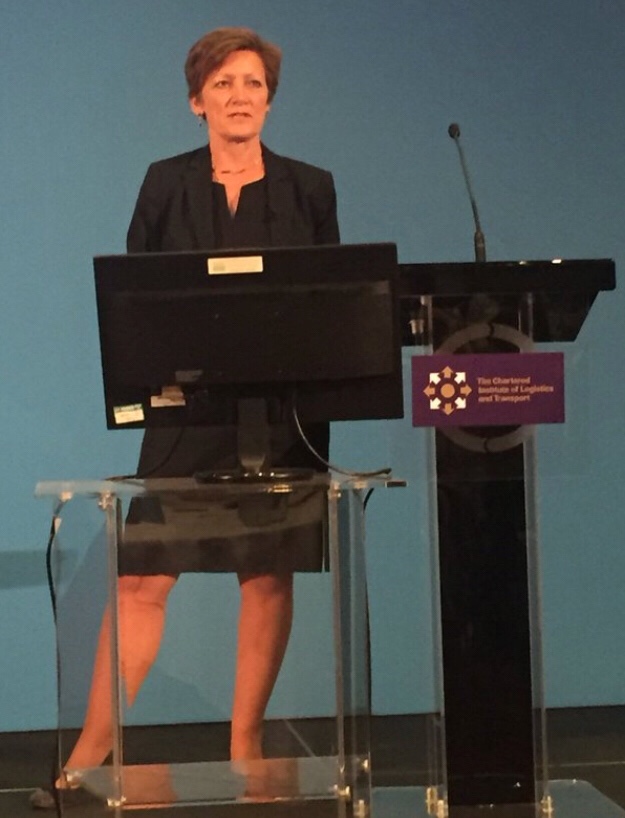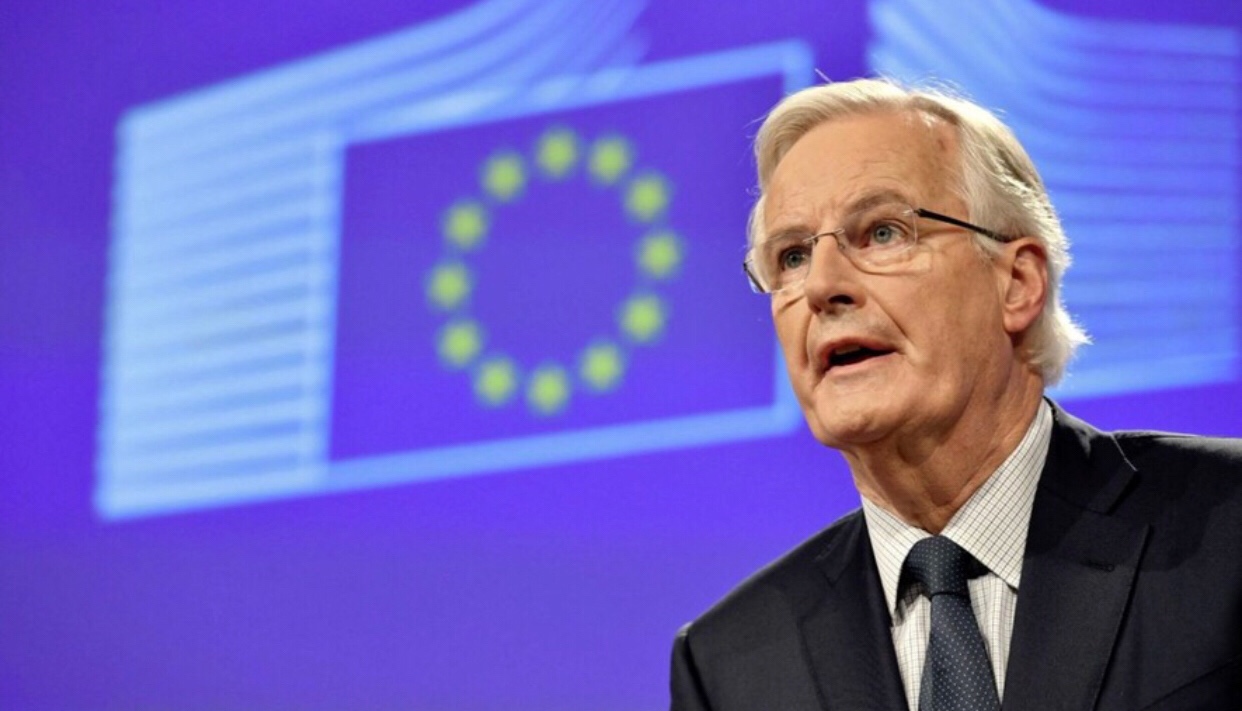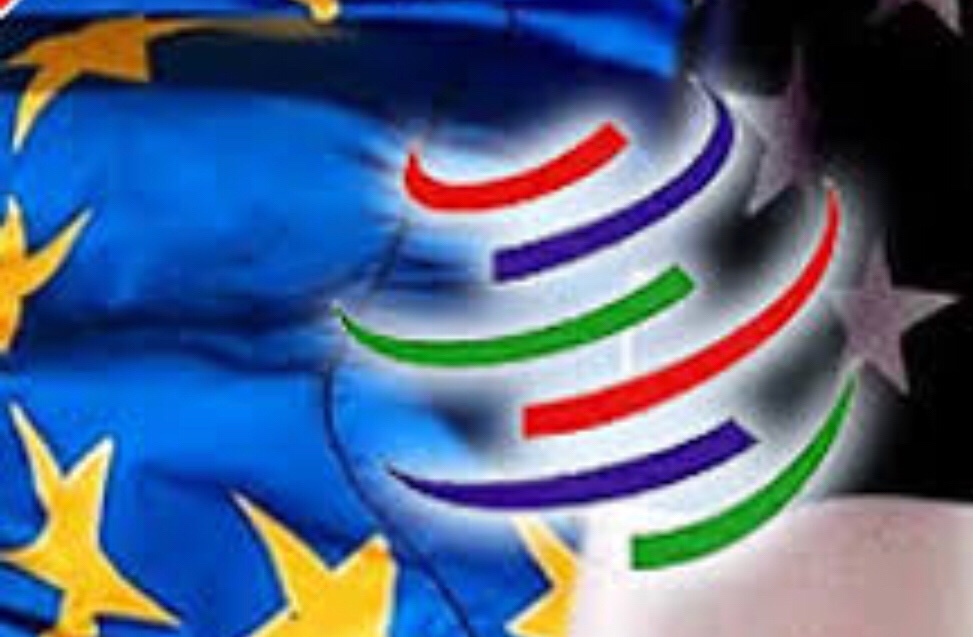Speaking today about SmartBorders and Brexit at the Getlink/Eurotunnel Freight Industry Forum at Millibank Tower in London.

It was a truly great event hosted by Jo Willacy and John Keefe from Eurotunnel.

I also participated with Karen Wheeler, Director General of the UK Government Border Coordination for Brexit, in a very open, transperent and interesting panel discussion.
Here below tou find EUs Cheif Brexit negotiator Michel Barniers comments in a Press Statement issued yesterday.

Ladies and gentlemen,
Our proposal for the backstop on Ireland and Northern Ireland has been on the table since February.
It is an insurance policy to avoid a hard border between Ireland and Northern Ireland, whatever the future relationship will bring.
It reflects our agreement with the UK in December 2017, confirmed by Prime Minister Theresa May in her letter to President Tusk in March.
We are ready to improve this proposal.
Work on the EU side is ongoing:
• We are clarifying which goods arriving into Northern Ireland from the rest of the UK would need to be checked and where, when and by whom these checks could be performed.
• We can also clarify that most checks can take place away from the border, at the company premises or in the market.
• We need to de-dramatise the checks that are needed and that are caused by the UK’s decision to leave the EU, its Single Market and customs union.
What we need in the Withdrawal Agreement is a legally operational backstop, which fully respects the territorial integrity of the UK.
This backstop will only apply unless and until a better solution is found, in the context of our future relationship.
Here is a link to the entire statement: Barnier
The European Union has presented their reform paper on how the World Trade Organization (WTO) can be modernize to meet the challenges of the future.
The European Commission yesterday presented a first set of ideas on how to modernise the WTO and to make international trade rules fit for the challenges of the global economy.
Presenting the Commission’s concept paper, Commissioner for Trade Cecilia Malmström said: “The multilateral trading system has for the past decades provided a stable, predictable and effective framework for companies across the world, helping many economies to grow rapidly. Also today, the WTO is indispensable in ensuring open, fair and rules-based trade. But despite its success, the World Trade Organisation has not been able to adapt sufficiently to the rapidly changing global economy. The world has changed, the WTO has not. It’s high time to act to make the system able to address challenges of the today’s global economy and work for everyone again. And the EU must take a lead role in that.”
The EU remains a staunch supporter of the multilateral trading system. For that reason, the European Council of 28-29 June 2018 gave the European Commission a mandate to pursue WTO modernisation to adapt it to a changing world, and to strengthen its effectiveness.
The EU’s concept paper published today and already consulted with EU Member States sets out the direction of this modernisation effort. Without prejudice to the EU’s final position on these matters, these ideas relate to three key areas:
- updating the rule book on international trade to capture today’s global economy strengthening the monitoring role of the WTO
- overcoming the imminent deadlock on the WTO dispute settlement system.
The EU already started to engage with other WTO partners: with the US and Japan, in the framework of the trilateral discussions; with China, in the dedicated working group set up during the latest EU-China Summit; with other partners, most recently at the G20 Trade Ministerial. The EU will continue discussing these first ideas with various WTO partners in the coming weeks with a view to preparing concrete proposals to the WTO. The European Parliament and the Council will be kept fully on board of those discussions.
The existence of agreed rules on cross border trade, monitored by the WTO and enforced through an impartial system for resolving disputes helped for decades to defuse trade tensions and avert trade wars. However, the development of new rules on trade has not happened in sync with economic, political and technological changes. In particular, market-distorting subsidies, often channelled through state-owned enterprises are not adequately captured under current international trade rules, eroding the level playing field for economic operators.

The WTO is now increasingly burdened by inflexible procedures and conflicting interest amongst countries. The arm of the WTO that resolves trade disputes is on the verge of being paralysed because of the blocking of nominations of new WTO Appellate Body Members. And the WTO’s role as a monitoring body is under threat by a lack of transparency from many countries.
The proposals published today aim to redress this situation and make the system efficient to the benefit of all its member countries.
You can read the document here: EU Reform Paper WTO






You must be logged in to post a comment.